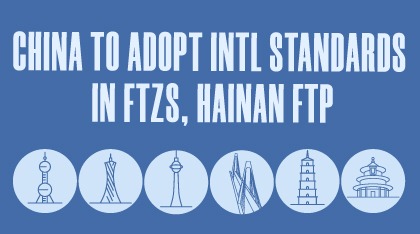
Editor's note: This year marks the 75th anniversary of the founding of the People's Republic of China. Five experts share their perspectives on the far-reaching impact of New China's accomplishments.
China a key driver of global growth
By Dan Steinbock
Recent years have seen some international pundits first claim the Chinese economy is a global inflation threat, and then allege it is a global deflation threat. When proved wrong, they claimed the Chinese economy would collapse amid its recovery.
After centuries of colonialism and half a century of the Cold War, the economic gap between Western countries and the Global South further widened, because of the West's inherently unequal economic policy. What has changed that equation is the rise of China.
In 1949, China accounted for a mere 4 percent of the global economy. But, thanks to its unprecedented economic rise, China today accounts for almost 19 percent of the global GDP.
Till the 1990s, the developing world was dependent on the West for many things. But by 2007, large emerging economies, spearheaded by China, were driving global growth, while the advanced Western economies' growth had slowed down. As a result, the impact of the Chinese economy on low — and middle-income economies soared, with development projects such as the Belt and Road Initiative and multilateral financial institutions supported by countries including China such as the Asian Infrastructure Investment Bank and New Development Bank helping boost growth in many emerging and developing economies. In this way, China has been fueling global growth. However, China's development project faces a serious threat.
Through much of this year, trade has driven China's growth. Unsurprisingly, China's two fastest-growing export sectors — electronics and electric vehicles — have been targeted by the United States and the European Union. And yet Chinese automaker BYD's lowest-priced car will be the least expensive in the US market, even with a 100 percent tariff.
Looking ahead, as research group Rhodium cautions, "sanctions are likely to remain a key risk for global investors as scrutiny of Chinese companies expands into new areas".
US policies are invariably aimed at reducing imports and bolstering domestic production, marked by the expansion of the "Buy American" provisions, which has resulted in the "increasing cost of buying American". This means ordinary Americans pay the bill for their government's tariff and sanctions wars. Many in the EU would soon be doing the same.
Before the former Donald Trump administration launched the trade wars, China replaced the US as the main driver of the global economy. Over the past decade, China has contributed more than 30 percent to global growth. This means the biggest threat to global recovery is not China, but the West's poisonous mix of protectionism, sanctions and geopolitics.
Dan Steinbock is the founder of Difference Group and has served at the India, China and America Institute (US), Shanghai Institute for International Studies (China) and the EU Centre (Singapore).
The views don't necessarily reflect those of China Daily.






